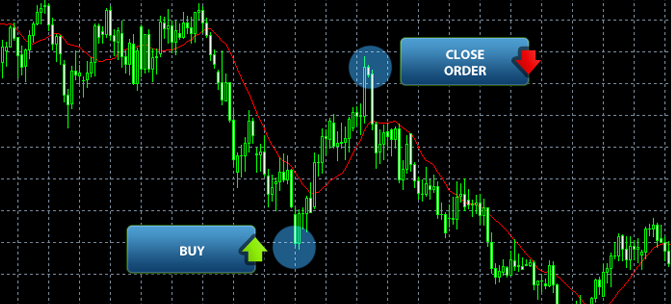Each one of us has an opinion about investment. As I've been telling everyone in the FXFledgling group before, the opinion of one person is limited to one's interest, perception, and/or experience. It is limited to one's horizon. The definition of "safe investment" is limited to one's decision on what to believe and do. There is actually no right or wrong on what to believe. It is just a decision.
If you talk to a Mutual Fund salesman, he would say that you should split your money to different funds, Equity, Bond, etc. That's their training. That's their definition of "safe investment". They do that to protect their clients. This approach is very much appropriate for people who are just starting and know nothing about investments. They can start safely. But some people, even if MF has a safety net like this, they can not take the ups and downs of the daily Net Asset Value (NAV) They ended up going back to bank time deposit.
If you talked to seasoned stock investors (those who buy & hold), he would say investing in Mutual Fund, especially non-equity funds is a waste of time. For them it is slow. They can take a bit higher risk compared to Mutual Fund investors just to speed up the performance of their portfolio. This is actually right if the investor knows what he is doing. But before you get to the level that "you know what you are doing", money and time are spent or even wasted just to get to that level. If you have the courage to pursue and never quit, you will reap the rewards sometime in the future. To some people, this approach is already stressful for them, so some of them go back to slower instruments like Mutual Fund. These are the people who would say that the stockmarket is very risky and advise you not to try it.
The next level is "stock trader". Do they earn bigger than stock investors? The answer is yes if they know what they are doing. The answer can be a yes or no if one is just learning the tricks of the trade. The same scenario is seen at this level. Those who try it will end up in two ways. Those who quit and those who never stop trying, failing, and learning until they get to the point of earning big. Endless money and time that one is willing to go are spent and sometimes wasted before they can reach the point of success.
Forex Trading!!!! TADA! My favorite :) This is the most controversial in the world about money making. Many investors even think this is a global scam :( But of course, we can not blame them. Most of those who have tried this ended up busted. As with other money making machines, if people try this they end up two ways, they quit or they would do everything and spend money and time or even waste money and time just to learn the secrets of those who became successful with it. Those who quit go back to stocks, Mutual Fund, etc. But those who never give up, they may experience unbelievably lucrative money making machine they never thought possible. I've been a Forex Trader for almost 17 years now, but I'm still learning every day. I've always had a jaw-dropping experience with some traders that used to be my students but now have made it very far higher level than me. With the advancement of technology, I witness traders that CONSISTENTLY earn 50%+ per month, 100%-300% per month, and most recently one of my students showed me how to earn 100% per day (There are actually 2 of them with different styles, the other one is into Binary Options thru Forex. He said he will also share to me his secrets soon). Decades ago, without technology, these successes are impossible. Of course, many people still believe that this is not possible. Their opinion is limited to what they are trained to believe with. If we are talking about this 30 years ago, yes they are correct. But we are talking about now. Thirty years ago, if we talk about cellphones, people would say "There's no such thing as a wireless telephone. It's impossible". If we talk about the internet, people would say "You are thinking about Science fiction at its best. Television is the greatest invention there is". Each industry has a technology attach to it. Technology upgrades every six months. There may be impossible ideas 6 months ago that is very much doable now. That's the truth.
So what's your investment horizon? Are you willing to expand that horizon? Or you just want to be contented to what you currently know? There's no right or wrong answer. It's just a matter of decision. Each decision is correct. Each one of us also should respect the decision of other people on how they handle their money. What you think is right may be wrong for them, so you just have to respect that.
If one wants his money to be just in the bank and willing to lose some of it to inflation rate because he has a peace of mind doing it, contented with it, so that is correct. If one wants to scatter it in different Mutual Funds, that is correct as well but better in terms of income. If he wants to try some of it in Stocks, that is also correct and way better in terms of income. If he wants a far more exciting method, he can try Forex Trading, which is also a correct investment of money and time, and far more rewarding in terms of income.
If you invest your money before you decide on what path to go to, be sure to double check your risk appetite. That is your guide on choosing what to try. Don't just think about how big profits will be. You have to check how much emotional investment you want to spend on it and how much money and time you are willing to lose before learning it.
In case you decided to try Forex Trading or have been trying it but still failing, the upcoming release of the book,
Uncharted Stratagems: Unknown Depths of Forex Trading may help you shorten your learning curve. You will learn unconventional knowledge about Forex Trading that you won't find anywhere else. It is a compilation of 17 years of experience in the industry. The result of thousands of failures and lessons encountered along the way and how traders like you can avoid it, so you can try right away what is already tested.
If you wish to grab a copy of the book click this link to pre-order...
https://fxfinnercircle.blogspot.com/p/awaken-forex.html?m=0




